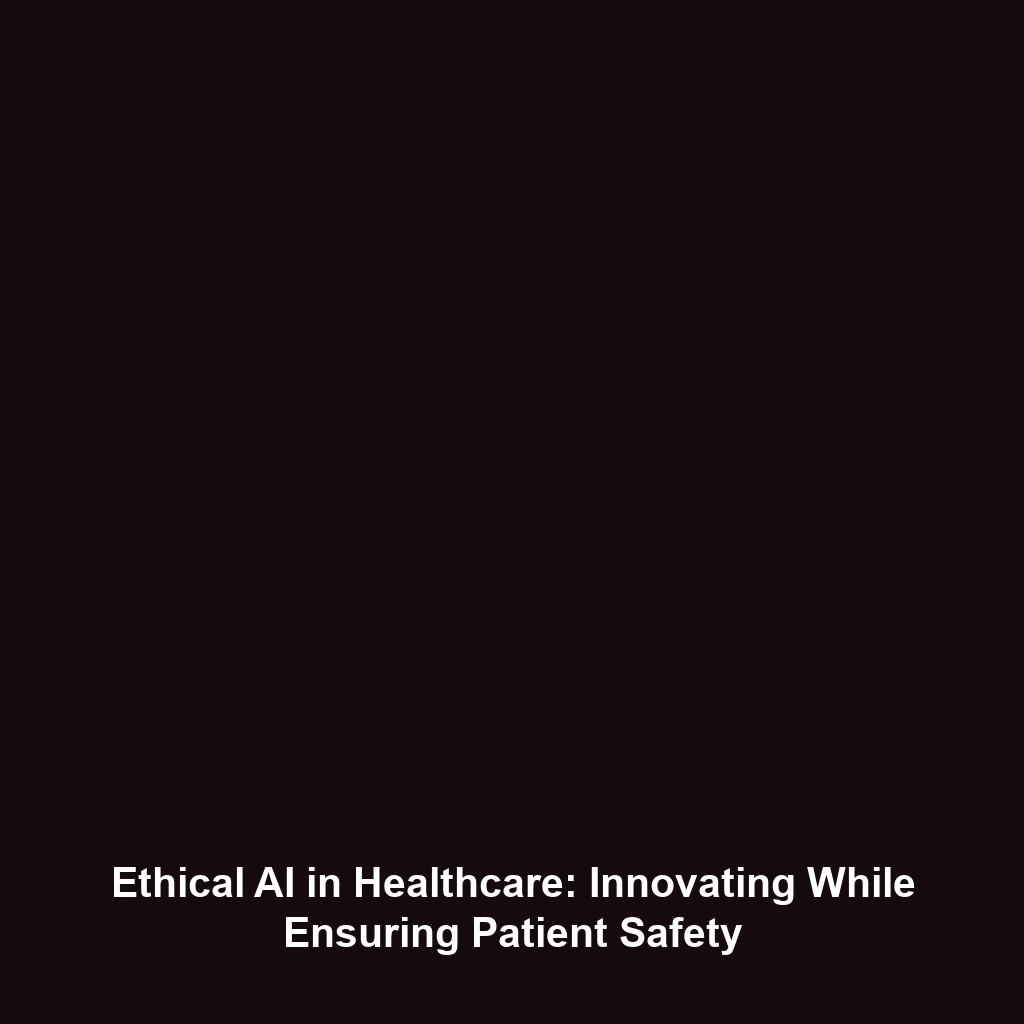Ethical Use of AI in Healthcare: Balancing Innovation and Patient Safety
Introduction
The ethical use of AI in healthcare is a crucial focus area as the technology continues to integrate into medical practices. While AI has the potential to revolutionize diagnostics and treatment plans, it raises significant ethical questions about patient safety and privacy. Balancing innovation with the need for patient confidence is paramount, making the ethical frameworks surrounding AI deployment essential. This article explores the foundational principles of ethics in AI within healthcare, examining its implications for patient care and safety.
Key Concepts
Principles of Ethical AI in Healthcare
Several key principles guide the ethical use of AI in healthcare. These include:
- Transparency: Ensuring that AI algorithms are understandable and their decision-making processes are clear.
- Accountability: Assigning responsibility for AI decisions to prevent harm to patients.
- Privacy: Protecting sensitive health information in compliance with healthcare regulations.
- Equity: Ensuring that AI technology is accessible and beneficial to all populations, avoiding bias and disparities.
These principles must be interwoven into the development and deployment of AI technologies in healthcare to safeguard patient interests while fostering innovation in the field.
Applications and Real-World Uses
The ethical use of AI in healthcare is being demonstrated through various real-world applications that emphasize patient safety without hindering technological advancement:
- Predictive Analytics: AI algorithms analyze patient data to predict disease outbreaks and manage chronic conditions.
- Diagnostic Assistance: Tools like IBM Watson Health assist clinicians in diagnosing illnesses with improved accuracy.
- Personalized Medicine: AI-driven insights into genomic data facilitate tailored treatment plans.
These examples highlight how the ethical use of AI is essential in maintaining the integrity of healthcare delivery while showcasing the advancements possible through AI technologies.
Current Challenges
Despite the benefits, several challenges hinder the application of ethical AI in healthcare:
- Data Quality: Poor data quality can lead to inaccurate AI predictions and medical errors.
- Bias in Algorithms: Lack of diverse data sets can result in biased AI outcomes, affecting specific population groups.
- Regulatory Compliance: Navigating complex healthcare regulations can pose hurdles for AI deployment.
- Public Trust: Building and maintaining patient trust in AI technologies remains a significant challenge.
Future Research and Innovations
The future of ethical AI in healthcare looks promising, with ongoing research aimed at new innovations:
- Explainable AI (XAI): Developing technologies that make AI decisions more interpretable for clinicians and patients.
- AI-Driven Clinical Trials: Using AI to identify patient populations for clinical trials efficiently.
- Integration with Telemedicine: Enhancing remote healthcare services through ethical AI applications.
These innovations are set to redefine patient interaction with healthcare systems, leading to more personalized and safe medical care.
Conclusion
In conclusion, balancing innovation and patient safety through the ethical use of AI in healthcare is a critical pursuit that demands attention and action from stakeholders. As we continue to integrate AI technologies, fostering frameworks that prioritize ethics will be essential for sustainable advancements. For more insights into the evolving landscape of AI in healthcare, explore additional resources on AI ethics and their applications.
